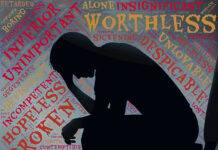Advertisement
BIO – MEDICINE
In this brief note, the author has reflected on bio-medicine, and the ethical issues relating to healing, life and death.
Avijit Pathak is a Professor of Sociology at JNU, New Delhi.

I met Mr. Das on December 2. And on December 5 I received a call from his daughter-in-law. Massive stroke – hospitalization-life-
Yet, it is not easy to negate my human vulnerability. I rushed to the hospital–a fancy hospital in West Delhi. His wife, his son, and his daughter-in-law- I met them, talked to them, and shared some moments with them. And yes, in the hospital I realized once again a set of paradoxes relating to bio-medicine and its notion of life, death and healing. For a doctor – or a trained specialist, the ICU and the artificial life support system are normal/desirable techniques or rituals that ought to be exercised or practiced for postponing death, or keeping the breathing of a dying patient somewhat alive, even when they would repeatedly remind the well-wishers that there is no hope, and it is only a question of time.
In a modern institution called the hospital guided by the logic of ‘science’, techniques prevail; and deeper ethical/existential questions relating to the meaning of life , or the art of dying do not matter.
No wonder, all of us were grappling with a serious ethical/existential questions. Should we allow him to die in a lonely ICU with all impersonal medical technologies perpetually ‘observing’ the parameters of the diseased body? Or do we take the ‘risk’, request the hospital to release the patient, bring him back to his residence, and allow him to die amid his loved ones? If we exercise this choice, are we then engaged in an act of ‘murder’? Or if we prefer this ‘medically monitored’ death (or its postponement for a day or two), aren’t we giving him pan only for our selfish interest to keep him artificially alive, or for accepting unconditionally the logic of modern medicine ? Aren’t we making his death meaningless–devoid of grace, and only a matter of technological declaration?
In our times, these dilemmas acquire yet another dimension because it is becoming increasingly difficult to trust the way these private hospitals function.
As government hospitals become over-crowded, we -the emergent middle class – begin to consume everything ‘private’: from private diagnostic clinics to private hospitals. And we do realize that it is not just about healing and service; it can’t be; we have to pay a heavy price for its ‘hygiene’, its spectacular show (you move around the corridors of the hospital, and you see the latest ad of the new MRI device; and you see the big screen showing an operation theater where doctors and sisters are involved in a ‘transplant surgery’), its fancy cafeteria, and above all its ‘resident’ doctors, ‘specialized’ doctors, nurses, medicines and all sorts of ‘tests’. A strange calculation, medical insurance politics and non-transparency– everything looks ‘mysterious:beyond one’s agency. Money flows; credit cards or ATM get exhausted; and with utter helplessness one finds oneself in a deep moral/ethical dilemma.
And then came the final moment. Officially, he was declared dead on December 7. In this age of documentation, this ‘official’ declaration or a registered death certificate matters. This is the beginning of yet another set of anxiety – closing the bank account, visiting insurance offices and all sorts of issues relating to property and material wealth. Our modern existence is really pathetic. It is not easy to die…














